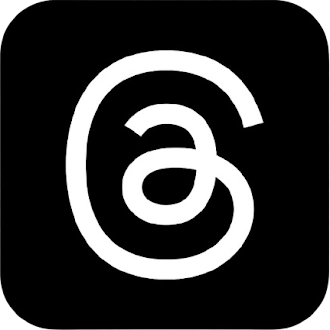
26th, Sep, 2025
Fire Extinguisher for Home - Types of Fire Extinguishers, How to Use & More
Fire extinguishers are not one-size-fits-all. Each type is designed to tackle a specific class of fire, and using the wrong one can make the situation worse. If you want the right fire extinguisher for home, you should understand the different varieties available.
What are the Types of Fire Extinguishers?
The following fire extinguisher types are available in the market:
1. Water Extinguishers
Water extinguishers are the oldest and most traditional type. They work by cooling down the flames and soaking flammable materials. Best for Class A fires (wood, paper, cloth), they are not safe for electrical or oil fires. Using water on such fires can lead to severe hazards.
2. Wet Chemical Extinguishers
These are specially designed for Class F fires, typically involving cooking oils and fats in the kitchen. Wet chemical extinguishers cool the flames while forming a soapy layer that prevents reignition. If you’re considering a fire extinguisher for your kitchen, this is the best choice.
3. Powder Extinguisher
Also known as ABC extinguishers, these are versatile and suitable for most home environments. They can fight Class A (solids), Class B (liquids), and Class C (gases) fires. While effective, they leave behind a residue that can damage appliances, so they may not be ideal for every room.
4. Carbon Dioxide (CO₂) Extinguisher
Best for electrical fires, CO₂ extinguishers work by displacing oxygen and suffocating the flames. They don’t leave residue, making them safe for electronics and home offices. However, they have limited use for other types of fires.
5. Foam Extinguisher
Foam extinguishers are suitable for Class A and Class B fires. They cool flames and smother burning liquids, preventing them from spreading. They’re a good general-purpose extinguisher for living rooms and garages.
Classification of Fire
To choose the right fire extinguisher for home, it’s important to understand fire classifications:
How to Use a Fire Extinguisher?
Using a fire extinguisher properly can make the difference between stopping a small fire and facing a full-blown disaster. The easiest way to remember is the PASS technique:
P – Pull the pin to unlock the extinguisher.
A – Aim at the base of the fire, not the flames.
S – Squeeze the handle slowly to release the agent.
S – Sweep side to side until the fire is out.
Safety tip: Always keep your exit behind you when using an extinguisher. If the fire spreads too fast, evacuate immediately and call emergency services.
Where Should You Keep Fire Extinguishers at Home?
The placement of extinguishers is just as important as choosing the right type. Experts recommend:
Kitchen: A wet chemical extinguisher for cooking-related fires.
Garage: A powder extinguisher for fuel or chemical fires.
Living Room/Bedroom: A foam or ABC extinguisher for general safety.
Home Office: A CO₂ extinguisher for electrical equipment.
Always mount them on walls near exit points for quick access.
When Should You Replace a Fire Extinguisher?
Fire extinguishers don’t last forever. They should be replaced if:
The pressure gauge shows low pressure.
The cylinder has dents, rust, or damage.
It has been used, even partially.
It’s more than 10–12 years old.
Many homeowners overlook replacement, which can leave them unprotected in emergencies.
Fire Extinguisher Maintenance
Regular maintenance ensures your extinguisher is ready when you need it:
Monthly: Check the pressure gauge and look for damage.
Annually: Have it professionally serviced.
Every 5–6 years: Some extinguishers require recharging or hydrostatic testing.
Neglecting maintenance could mean your extinguisher fails at the worst possible moment.
Which Fire Extinguisher is Best For Home?
The ideal fire extinguisher for home depends on your specific needs:
Kitchen: Wet chemical
Garage: Powder
Living areas: Foam or ABC
Home office: CO₂
If you want just one multipurpose extinguisher, go for an ABC powder extinguisher. But ideally, each area of the house should have the type suited for potential fire risks.
FAQs About Fire Extinguishers for Home
1. Can I use a water extinguisher in the kitchen?
No, water extinguishers are dangerous for oil and electrical fires. Always use a wet chemical for kitchens.
2. How many fire extinguishers should I have at home?
At least one on each floor, plus specific ones for high-risk areas like kitchens and garages.
3. Do fire extinguishers expire?
Yes, most last 10–12 years with proper maintenance.
4. Can children use fire extinguishers?
Not recommended. Only trained adults should operate them. Teach children to evacuate and call for help.
5. Is a smoke alarm enough instead of an extinguisher?
No, smoke alarms warn you but don’t put out fires. Both are essential for safety.
6. What should I do if the fire reignites after using an extinguisher?
Evacuate immediately and call emergency services. Never attempt to fight a spreading fire alone.
Conclusion to Fire Extinguishers for Home
A fire extinguisher for home is one of the most important safety tools you can own. Knowing the types, proper usage, placement, and maintenance ensures your family is prepared for emergencies. While no one likes to think about home fires, being prepared can save lives and property.
House Gyan all services
Loading...HouseGyan is your trusted platform for everything related to home design, construction, and planning. We offer a complete range of services to help you build your dream home with ease and confidence.
Our Services
- Price Calculators: Plan your budget with our tools like Home Loan EMI Calculator, Tile Price Calculator, Brick Cost Calculator, and more.
- House Drawings & Plans: Explore ready-made house plans or get custom house drawings designed to fit your needs perfectly.
- Elevation Designs: Choose from modern elevation designs or request a custom elevation design for a unique look.
- Accurate Estimates: Get clear and accurate construction cost estimates to plan better.
- Shubh Muhurat & Vastu Tips: Follow our Shubh Muhurat and Vastu guidelines to bring positive energy and harmony to your home.
- DIY Home Repair Guides: Learn easy DIY tips to fix and maintain your home efficiently.
- Interior Design Ideas: Discover creative ideas for living rooms, bedrooms, kitchens, balconies, and more.
Why Choose HouseGyan?
- All-in-One Platform: From house plans to price calculators, we cover it all.
- Custom Solutions: Get personalized designs and estimates for your home.
- Expert Guidance: Access professional tips on Vastu, Shubh Muhurat, and construction materials.
- User-Friendly: Our tools and content are designed to simplify home building for everyone.

The information contained on Housegyan.com is provided for general informational purposes only. While we strive to ensure that the content on our website is accurate and current, we make no warranties or representations of any kind, express or implied, about the completeness, accuracy, reliability, suitability, or availability with respect to the website or the information, products, services, or related graphics contained on the website for any purpose. Housegyan.com will not be liable for any loss or damage including, without limitation, indirect or consequential loss or damage, or any loss or damage whatsoever arising from loss of data or profits arising out of, or in connection with, the use of this website.
Third party logos and marks are registered trademarks of their respective owners. All rights reserved.










